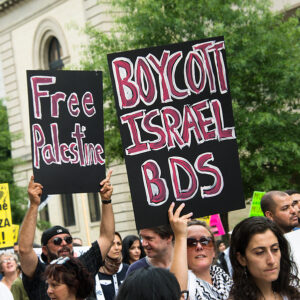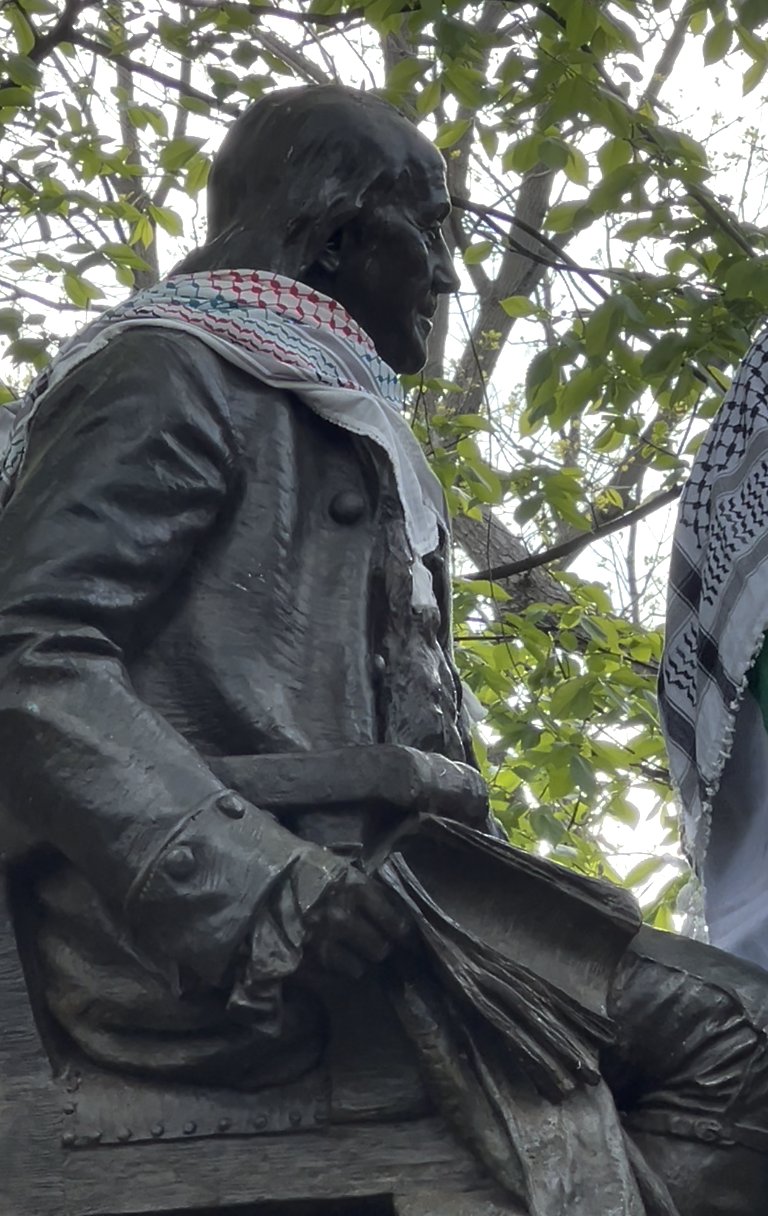Penn Announces New Office to Fight Religious Intolerance in Wake of Anti-Israel Protests

University of Pennsylvania officials announced a new Office of Religious and Ethnic Inclusion to deal with antisemitism and Islamophobia on campus. It was one of the changes called for by the university’s Task Force on Antisemitism and its Presidential Commission on Countering Hate and Building Community.
The announcement comes in the wake of anger over anti-Israel protests on the Penn campus in the months after the Hamas Oct. 7 terror attack. It has been home to some of the nation’s most high-profile, pro-Palestinian protests, including an encampment of anti-Israel activists.
And former Penn president Liz Magill’s testimony before Congress about the school’s mishandling of anti-Jewish actions on campus that was so inept, she was forced to resign.
For Jewish students and their allies, creating the new office is an important step.
“We commend the University of Pennsylvania for the establishment of an Office of Religious and Ethnic Inclusion to address antisemitism and Islamophobia on campus,” said Michael Balaban, President and CEO of the Jewish Federation of Greater Philadelphia.
While a permanent head of the office will be appointed after a search, Majid Alsayegh and Steve Ginsburg were appointed co-leaders.
Ginsburg, a former executive with the Anti-Defamation League, has experience countering bias and extremism. Alsayegh, who grew up in Iraq, serves on the national Muslim Jewish Advisory Council, a bipartisan group of business, political and religious leaders, interim Penn President J. Larry Jameson said when he announced the appointments. Majid is also chair of the board of the Dialogue Institute, which engages religious leaders in discussions.
Balaban praised that move as well.
“Steve Ginsburg and Majid Alsayegh are exceptional individuals, and with the University choosing them to lead this effort, we are hopeful that Penn will become a place where the Jewish community and Jewish expression can thrive.
“As we approach the one-year anniversary of Oct. 7 and campus protests continue to devolve into student harassment and intimidation, this office will be an important resource for ensuring that all students feel safe and protected on campus,” Balaban said.
Many of the school’s Jewish students say they feel unsafe, and some of them filed a federal lawsuit against the Ivy League university.
In July, Jewish students testified before the Pennsylvania Senate about how they’ve been treated on campuses, including at Penn.
“Myself and other students wearing kippahs were called ‘Nazis’ and ‘child killers,’” he said. “Chants of ‘Al Qassam make us proud’ (Al Qassam refers to the military wing of Hamas). Protestors telling me, ‘Hamas should do it again’ while we were displaying footage of the Oct. 7 massacre, and clapping when the video displayed a woman being raped. Again, clapping when a woman was shown being raped,” Penn student Benjamin Messafi told the senators.
“Having to evacuate Hillel, the only safe spot for Jews on campus, because there was an active bomb threat on the building. Classroom buildings and libraries being blocked and occupied by non-student protestors during finals week,” he added.
The American Jewish Committee’s Center for Education Advocacy also praised Penn’s actions.
“At a time when antisemitism and other forms of religious and ethnic hatred have roiled many college and university campuses, it is essential to explore new ways to promote constructive dialogue and ensure a safe, supportive environment for all students and faculty,” the organization said in a statement to DVJournal. “We welcome this move by Penn. By using this office as the sole point of contact to investigate religious and ethnic discrimination, the Penn community will now be in a better position to know who will be held accountable to ensure any complaints are promptly investigated and resolved.”
But Rav Shai Cherry, the rabbi at Adath Jeshurun in Elkins Park, urged supporters of Jewish students to withhold judgment until they see results.
“Combatting antisemitism is a good idea. Who would argue otherwise?” Cherry said. “But no one will be able to reasonably assess the efficacy of Penn’s initiative until we see guidelines and evidence of how they treat specific incidents and complaints.
“What happened at Columbia University was a dismissal of Jewish students’ sense of being under threat. Such a summary dismissal is an abdication of the university’s responsibility. On the other hand, a feeling of being under threat is not sufficient justification, in itself, to take disciplinary action. There needs to be a third party to evaluate the details and circumstances of the situation. Let’s hope that Penn’s new office serves as a model for the rest of the academic world.”
Please follow DVJournal on social media: X@DVJournal or Facebook.com/DelawareValleyJournal




